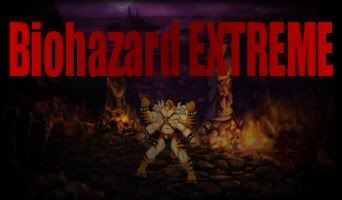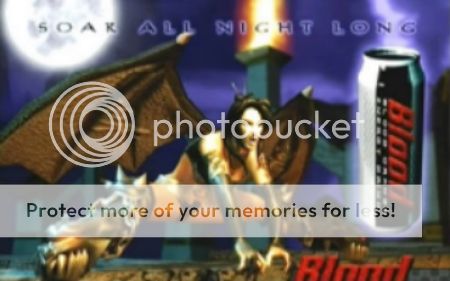 There's no denying the current generation of Mortal Kombat has given fans plenty of reasons to be thankful. Throughout 2012, we've made a lot of noise about the MK 20th Anniversary, and the great things we've seen from series inception, to current day.
There's no denying the current generation of Mortal Kombat has given fans plenty of reasons to be thankful. Throughout 2012, we've made a lot of noise about the MK 20th Anniversary, and the great things we've seen from series inception, to current day.
Less talked about has been the milestone sandwiched directly between -- an anniversary happening in November that we simply couldn't ignore!
As of mid-November, it has officially been 10 years since the release of Mortal Kombat: Deadly Alliance -- a game, much like the current one, that refreshed the series for a whole new era.
Characters received impressive new designs, gameplay entered uncharted territory, and the sins of the past were rectified in a major modern evolution for the then flagging fighter. It was perhaps the most significant development since the series' first sequel, but for a time, nobody even knew if it would happen!
The release of Mortal Kombat 4 had left the series in uncertain territory. Criticized for an awkward entry into the polygonal era; MK's first attempt was ultimately dominated by more proficient "3D" fighters (like Tekken), which were defining the zeitgeist of an age ditching the classics, whilst fast signing the death warrant of the arcades that spawned them.
A Dreamcast exclusive in '99 (MK: Gold) did little to reverse lukewarm reviews for the previous years MK4 console ports, arriving two years after the original arcade release. The update marked the first of many times the series would attempt to tap into the goodwill of MKII nostalgia, but reinserting characters like Baraka and Kitana, alongside MK3's popular cyber-ninjas, failed to create a significant buzz beyond fandom.
If you know your Mortal Kombat Online history, you know the site began life around this time, as MK5.org. Named for the sequel nobody was certain was coming, the site rallied fans around hopes built during the lengthy two-year cycle of MK4.
The turn of the millenium would bring only occasional blips for "MK5" watchers: rumors to coincide with tangent projects like Threshold Entertainment's television prequel, Mortal Kombat: Conquest, and the bungled 2000 PlayStation exclusive, Mortal Kombat: Special Forces.
In 2001, the real rumblings started, and the future looked bright...

Jax battles Scorpion in a 2001 screenshot -- obselete by the time Deadly Alliance hit in 2002.
Despite the best efforts of dedicated members of the Midway Games staff, the arcades were dead. 2002 was projected to be a transition point as they refocused development on the ever expanding exclusive home console market. "Mortal Kombat Five" would take pride of place in the line-up, designed to "revolutionize [...] the fighting game genre that [MK] helped create." If fans weren't already champing at the bit for a sequel after five years, big claims like that were certainly going to whip up that frenzy!
In an April, 2001 live chat co-moderated by MK5.org and MortalKombat.com; Ed Boon talked up changes coming to the series -- "Well you can throw everything you know about MK out the window, cause we are using a completely different fighting engine." Preliminary screenshots released shortly after [pictured above] failed to demonstrate just how different things were about to get.
Where Mortal Kombat 4 had staked its primary visuals on polygonal versions of MK3 spandex, Deadly Alliance was reinventing the wheel, the vehicle, and the driver, as well!
Far from spin, the reinvention of Mortal Kombat was to be a thorough expression, brilliantly referencial, but entirely fresh. No man would ever again mock the shared fashions of rival ninjas in Deadly Alliance -- an achievement in itself and a bold statement about the set course!
 A sense of overdue individuality in character design was the first and lasting impression of 2002! First-look characters like Scorpion and Quan Chi were clearly consistent with what they'd always been, but the new hardware -- and the design philosophy it supported -- was finally fulfilling promises made by sequalized improvements in the original era.
A sense of overdue individuality in character design was the first and lasting impression of 2002! First-look characters like Scorpion and Quan Chi were clearly consistent with what they'd always been, but the new hardware -- and the design philosophy it supported -- was finally fulfilling promises made by sequalized improvements in the original era.
With the rainbow palette swap ninjas trashed, it only made sense that uniform fighting technique would also be relegated to the technological restrictions of the past.
The drubbing MK4 took at the hands of Tekken was clearly learnt from, resulting in the introduction of individual fighting styles for most characters, and a surprisingly earthbound style of play.
Coming to grips with the new grounded, multi-style method was helped along by a similarly cribbed, Tekken-style practise mode. Better still, the first ever Konquest mode toured the twenty-plus roster, flushing out basic attacks, combos and expanded storylines in a prolonged tutorial twixt story mode. It was an important step toward credibility, but as IGN noted in their 2002 review, it came with good and bad:
The fighting system on the whole is incredibly enjoyable and makes for the most fluid and playable Mortal Kombat yet. It's most assuredly an offensive game with a sound defense playing second fiddle to a good sword slash. Unfortunately, there are still a couple of problems that have haunted the previous titles in the series and end up mucking with things here: Specifically, the cheap-hit tactics and static A.I. of your CPU opponent and the imbalance of impaling your opponent.
- Jeremy Dunham (IGN Review, November 2002)
While the intricacies of the new engine were still subject to criticism -- Electronic Gaming Monthly gave Deadly Alliance 65% in their January 2003 issue, stating, "Strip away the surprisingly excellent graphics and gimmicky bonus material and you've got a 3D fighter that's derivative at best." -- many reviewers felt simplicity was a virtue for the series that has always kept a rare sympathy for the neophyte. Some were willing to go so far as to compliment the accessibility of the game -- something we dare not dwell on in 2012!
It's a much less complex fighting system than the one in VF4 or Tekken, but that's part of its appeal - there's no need to learn specific throw-reversals or obsess over timing glitches to succeed. If you're put off by the frightening depth of other scrappers, this new system's the perfect level playing field to develop your skills, with enough combos to reward practice.
- Joel Snape (Games Radar Review, January 2003)
Mortal Kombat is a 3D fighter that doesn't fall into the same trap that some other games have fallen into when making the 2D-to-3D transition. It also doesn't play much--or at all, for that matter--like other 3D fighters on the market. What you're left with is an unusual fighting game that does a great job of balancing the classic Mortal Kombat style with enough new additions to draw in people who aren't completely familiar with the rest of the series. Anyone looking for a wilder ride than the one offered by Tekken 4's or Virtua Fighter 4's comparatively straightforward martial arts battles should definitely check out Mortal Kombat: Deadly Alliance.
- Jeff Gerstmann (Gamespot Review, November 2002)
Input timing could sometimes become frustrating (made moreso in Deception), but the fluidity of basic movement and move animation is another detail that makes Deadly Alliance a fondly remembered stand-out. Current wisdom is to take fighting games back to something closer to the 2D era, but the strength of the sense of character in motion may be the price of that reverted thinking.
Character is ultimately the inescapable brilliance of Mortal Kombat: Deadly Alliance. Reception for new characters was mixed, but at least deserves credit for boldly going where MK concept hadn't before, delivering us perhaps the last great new addition - Kenshi.
The success of the Deadly Alliance cast and plot was a testament to life after John Tobias. The series co-creator and driving creative force had left to forge a new path for himself in 2000, creating an Xbox-exclusive rival in Tao Feng: Fist of the Lotus as Studio Gigante. 2002 belonged to John Tobias and the rest of the team, who showed a deft touch in taking the series back to its Eastern-inspired roots, whilst expanding on the mythology that had been created right up to Mortal Kombat 4.

Quan Chi & Shang Tsung - The Deadly Alliance were something old and something new.
Like MK4 -- and it's related spin-off, Mortal Kombat Mythologies: Sub-Zero -- Deadly Alliance stepped into the modern age with a more elaborate, tightly woven narrative. Pieceing together character endings would weave a cohesive map with branching points of difference, while the concrete elements detailing The Dragon King would lay the groundwork for Deception (2004) in ways that make Mortal Kombat II's Outworld transition seem like cave scratchings.
It's a shame Tobias didn't get a chance to pilot the ship in waters that supported this much investment in storytelling. In a recent interview, he told us he certainly had ideas for where the story was going, and expressed the kind of plot-minded thinking that makes us long for another time in games. Even so, if things had to move on without Tobias, we have to be glad they went where they did.
The greatest crime of Deadly Alliance's story and the bold moves it made -- such as the killing off its lead protagonist and antagonist, Liu Kang and Shao Kahn -- is that it didn't have the conviction to follow through. Instead of forging a strong new era filled with strong new lead heroes (and villains), the series squirmed its way back toward the eventual rewrite of history told in 2011.
It's easy to get sentimental about Deadly Alliance -- especially coming up to the holidays. It was a high point for the series, defined by decisions that seem completely alien to the current mode of thinking in major corporate-funded video games. The slate seems clean for Mortal Kombat right now, with the next linear step leading us right in this direction, but it seems completely unfathomable that we'll ever see days like MKDA again. Even if only because, ten years later, we shouldn't!
It's been a nostalgic type of year for Mortal Kombat! Be you an OG mortal of twenty years, or a millenial longing for the recently retro, we want to hear from you! Post your early experiences to the Year of the Dragon 20th Anniversary thread, then join us under the microscope of the Deadly Alliance 10th Anniversary!




















 MK Khronology: 58.49% complete...
MK Khronology: 58.49% complete...






